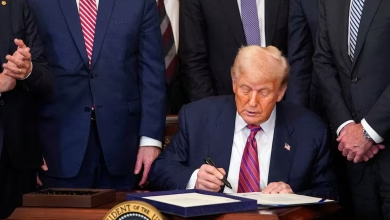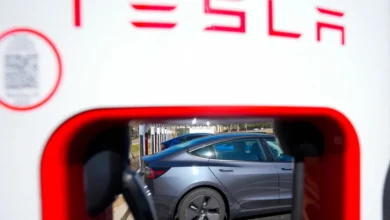Tesla slashes prices in Europe, US in bid to drive demand

Tesla has slashed prices on its electric vehicles in the United States and Europe by as much as 20 percent, extending a strategy of aggressive discounting after missing Wall Street estimates for 2022 deliveries.
The move, which prompted a 3.8 percent fall in Tesla’s shares in Frankfurt, came after CEO Elon Musk warned that the prospect of recession and higher interest rates meant it could lower vehicle pricing to sustain volume growth at the expense of profit.
The lower pricing across Tesla’s major markets marks a reversal from the strategy the automaker had pursued through much of 2021 and 2022 when orders for new vehicles exceeded supply. Musk acknowledged last year that prices had become “embarrassingly high” and could hurt demand.
The US price cuts, announced late Thursday in US time on the Model 3 sedan and Model Y crossover SUV, ranged between 6 percent and 20 percent compared with prices before the discount, according to Reuters calculations.
That is before an up to $7,500 federal tax credit that took effect for many electric vehicle models at the start of January.
Following is a table of the price cuts by model in Germany and the United States:
Tesla also cut prices for its Model X luxury crossover SUV and Model S sedan in the United States.
In Germany, it cut prices on the Model 3 and the Model Y – its global top-sellers – by between about 1 percent and almost 17 percent depending on the configuration. It also cut prices in Austria, Switzerland and France.
For a US buyer of the long-range Model Y, the new Tesla price combined with the US subsidy that took effect this month amounts to a discount of 31 percent. In addition, the Tesla move broadened the vehicles in its line-up eligible for the Biden administration tax credit.
Before the price cut, the five-seat version of the Model Y had been ineligible for that credit, a designation Musk had called “messed up.” After the price cut, the long-range version of the Model Y will qualify for the $7,500 federal credit.
“This should really boost 2023 (Tesla) volumes,” Gary Black, a Tesla investor who has remained bullish on the company and its prospects through the recent, sharp share price decline, said in a tweet. “It’s the right move.”
Still, some users on Tesla fan forums online complained the price cuts disadvantaged customers who had recently bought their vehicle, leaving them with a lower-valued item on the second-hand car market.
“I’m not very pleased with these huge price sways. Just reducing 10,000 euros like that – definitely makes you feel that you just paid far too much,” one user wrote on a ‘Tesla Drivers and Friends’ forum on Friday.
In China, where Tesla cut prices last week by 6-13.5 percent, owners protested at delivery centers across the country, pressing Tesla for compensation.
Before the price cut, Tesla inventory in the United States, as tracked by the models its website shows as immediately available, had been trending higher. Prices on used Tesla models had also been declining, increasing the pressure on it to adjust new-car sticker prices.
For 2021, the United States and China combined had accounted for about 75 percent of Tesla sales, although the automaker has been growing sales in Europe, where its Berlin factory has been ramping up production.
New sales leadership
The shift is the first major move by Tesla since appointing its lead executive for China and Asia, Tom Zhu, to oversee US output and sales.
Tesla cut prices in China and other Asian markets last week. Along with previous price cuts announced in October and recent incentives, the Chinese price for a Model 3 or Model Y was down 13 percent to 24 percent from September after the recent move, Reuters calculations showed.
Tesla has also cut prices in South Korea, Japan, Australia and Singapore.
Analysts had said the Chinese price cuts would boost demand and increase pressure on its rivals there, including BYD, to follow suit in what could become a price war in the largest single market for electric vehicles.
That pressure could be building in Europe as well.
Tesla’s Model 3 was the best-selling electric vehicle in Germany last month, followed by the Model Y, beating Volkswagen’s all-electric ID.4. Volkswagen recently raised the price of its entry-level ID.3, putting it at parity with the now-discounted Model 3.
Tesla missed Wall Street estimates for fourth quarter deliveries. Full year growth in deliveries was 40 percent – also short of Musk’s own forecast of 50 percent.










